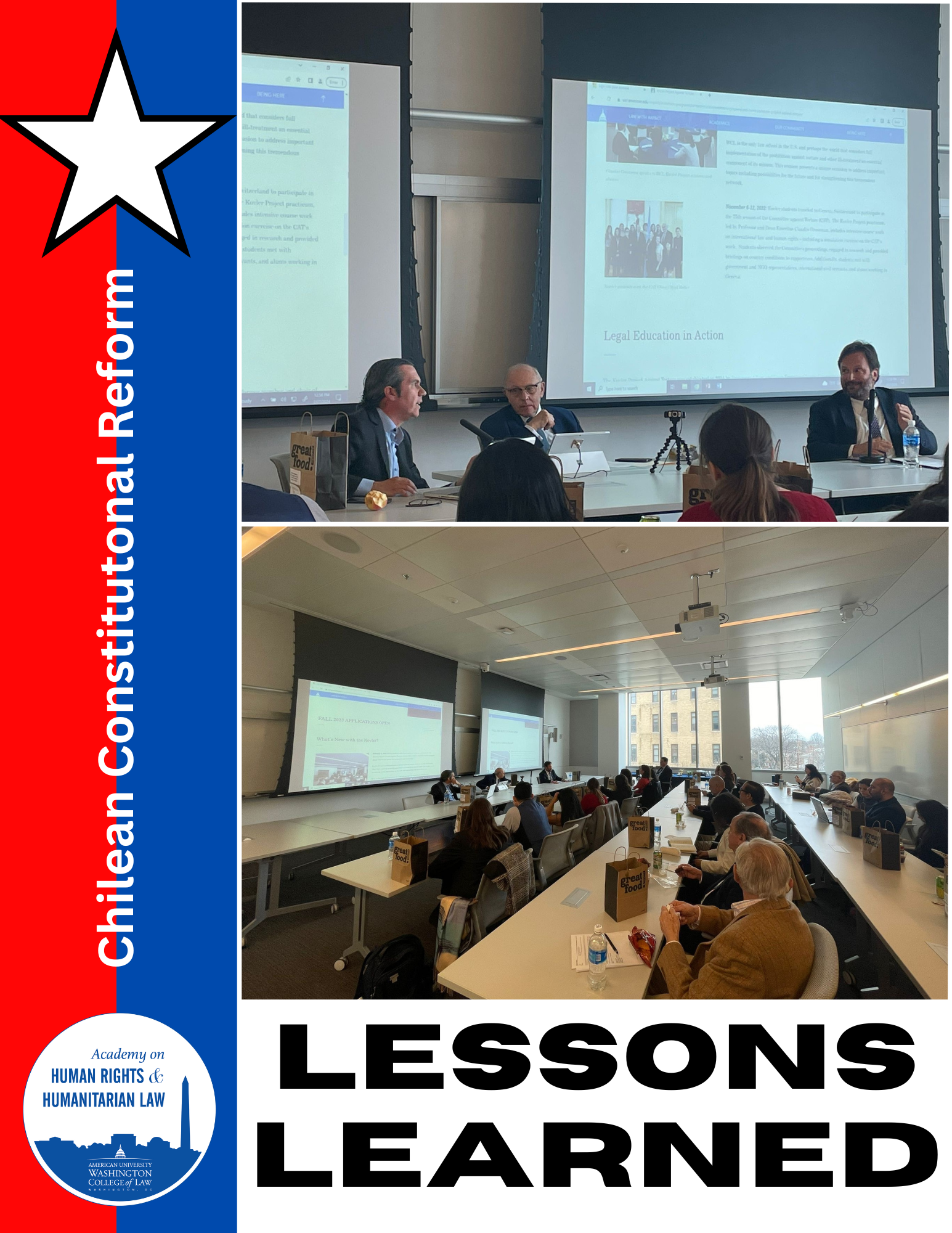Dialogue on lessons learned from the Chilean Constitutional Reform Processes
From left to right: Professor Tomás Jordán Díaz fpm la Universidad de Chile; Dean Emeritus and Professor of Law, Claudio Grossman; and Professor Víctor Manuel Avilés Hernández, also from Universidad de Chile.
This conference, organized by Professor and Dean Emeritus Claudio Grossman and the Academy of Human Rights, discussed the constitutional experiences of Latin Americans, especially focusing on Chile.
The 3 participants were direct contributors to the last constitutional process that took place in that country as members of the Comite Tecnico de Admisibilidad (Technical Committee on Admissibility). A type of constitutional court that would be the final decision maker of complaints concerning whether draft articles that were submitted for the referendum that took place in December last year were in accordance with 12 basic principles, including separation of power, compliance with international norms, social and democratic state of the rule of law, and so forth.

This conference followed an event that took place also at American University Washington College of Law on February 19 and 20, which convoked distinguished academics and specialists in constitutional and international law from the Americas and Spain. In addition to Professor Grossman, 4 members of the Comision de Expertos (Committee of Experts) who had prepared a consensual proposal for a new constitution in Chile participated: Veronica Undurraga, Maximo Pavez, Caterina Martorelli, and Domingo Lovera.
All the conferences are designed to draw the lessons of the constitutional processes in Chile, including the search for common ground relevant to the purposes of constitutional drafting.
Story by Gabriel J. Ortiz Crespo